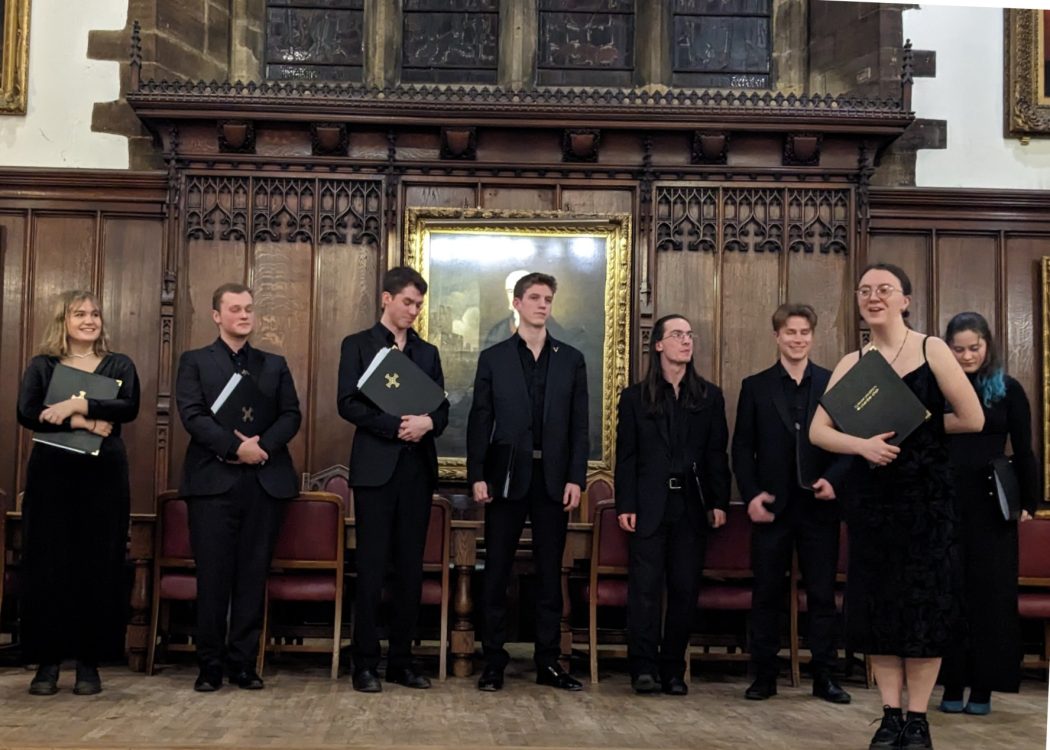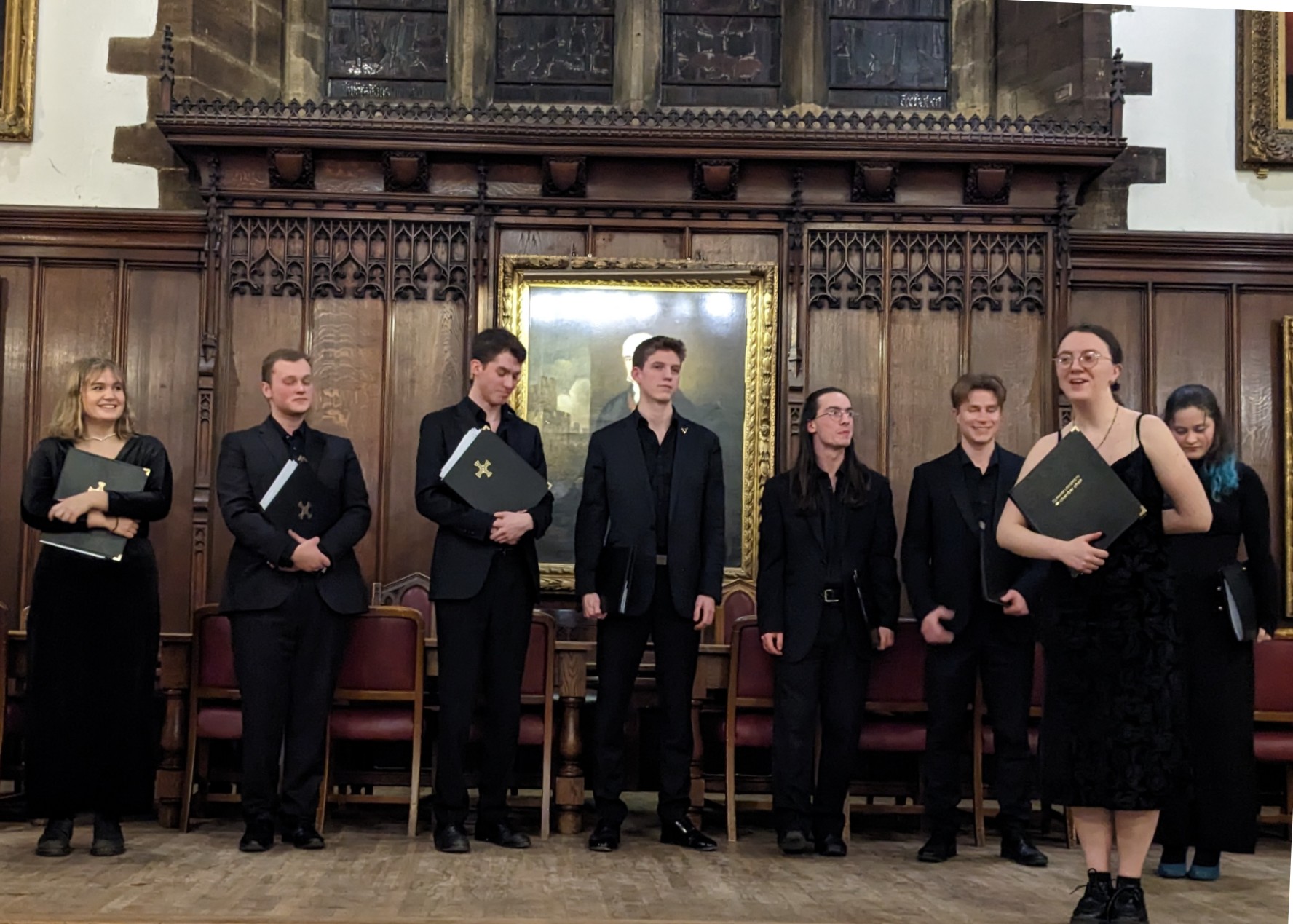With their tormented passion and equally tormented harmony, I always find that Italian madrigals are best enjoyed in small, concentrated doses, which is exactly what the Dunelm Consort gave us in this 45 minute recital of madrigals by Luca Marenzio, Carlo Gesualdo, Claudio Monteverdi and Barbara Strozzi. The full ensemble of twelve singers opened with a polished, unconducted performance of Marenzio’s hymn to the nymph Chloris, ‘Cantiam la bella Clori’, and made all the more enjoyable by the singers making flirtatious eye contact with each other and the audience.
The group then split and recombined into different solo ensemble groups, with soprano Jess Norton Raybould giving spoken commentary in lieu of a programme sheet. The five singers for Marenzio’s steamy ‘Basciami mille volte’ (‘Kiss me a thousand times’) coloured their text with energetic consonants as the music heated up after a languorous beginning and this was followed by anguished friction as the upper voice lines ground together in a song from ‘Il pastor fido’. At times, small groups sometimes lost the confidence to look up and communicate, and heads were buried in copies, which meant the music lost direction. However, the individual lines were always clear as was the text, and the quality of the singing was excellent.
A highlight of this short recital was undoubtedly Monteverdi’s ‘Lanemto della Ninfa’. Soprano soloist George Daniel made her love-struck nymph fragile and vulnerable, while the three men of the chorus commented expressively – and unsympathetically – on her woes with a dry wit. Also very enjoyable was ‘Hor che’l ciel e la terra’ that followed, which began in deep darkness and broke into spirited singing for the ‘guerra guerra’ passages. The mood was lifted by the lively ‘Damigella tutta bella’, a hymn to wine and women, delivered with boozy licentiousness and one of several songs in the recital that was enhanced by a continuo pairing of bassoon and harpsichord. Not just in this piece, but throughout the recital, it was evident that the group had put a lot of effort into preparing the text – the Italian was really clear, and some singers in particular were really giving their all in communicating the meaning to us.
The full ensemble turned to Barbara Strozzi to finish, and again there was plenty of characterisation in ‘L’amante modesto’, another playful devotion to Chloris.







